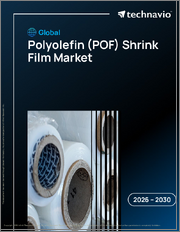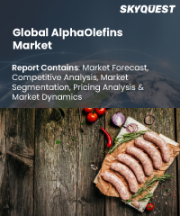
|
시장보고서
상품코드
1679500
폴리올 시장 : 시장 규모, 점유율, 동향 분석 보고서 - 제품별, 용도별, 지역별, 부문 예측(2025-2030년)Polyols Market Size, Share & Trends Analysis Report By Product (Polyester, Polyether), By Application (Rigid Foam, Flexible Foam) By Region (North America, Europe, APAC, Latin America, MEA), And Segment Forecasts, 2025 - 2030 |
||||||
폴리올 시장의 성장 및 동향
Grand View Research, Inc.의 최신 보고서에 따르면 세계의 폴리올 시장 규모는 2030년까지 677억 달러에 달할 전망이며, 2025-2030년 CAGR 8.4%를 나타낼 것으로 예측됩니다. 금속과 같은 기존의 무거운 재료에서 경량 고성능 플라스틱으로 동향이 이동하고 있습니다. 그 결과, 자동차 부품의 경량화 및 연비 향상을 위해 폴리우레탄을 사용하게 되었습니다. 이것은 세계 폴리올 수요에 긍정적인 영향을 미칠 것으로 예상됩니다.
폴리올은 자동차, 가구 및 침구, 건축 및 건설, 제약, 포장 등의 중요한 최종 이용 산업에서 용도가 확대되고 있기 때문에 수요가 증가하고 있습니다. 자동차 시장의 성장 및 에너지 효율적인 건물에 대한 주목 증가가 폴리올 시장을 견인하는 주요 요인이 되고 있습니다.
PU 접착제 제형에서는 폴리에테르 폴리올이 주요 제품 부문이 되었습니다. 폴리에테르 폴리올은 저온에서의 유연성이 뛰어나 폴리에스테르 폴리올에 비해 가수분해의 영향을 받기 어렵습니다. 폴리에테르 폴리올은 반응성 핫멜트 접착제의 제형에도 이용됩니다. 폴리에스테르 폴리올은 빠른 설정 시간과 초기 녹색 강도를 필요로 하는 고도로 자동화된 핫멜트 접착제 적용에 널리 사용됩니다.
게다가 폴리올 시장 전체의 시나리오로서 주요 제조업체들은 기존의 석유화학 유래 폴리올에 대한 의존도를 줄이고, 이에 따른 환경 문제와 불안정한 원료 가격 등의 위험을 줄이기 위해 바이오 폴리올을 도입하고 있습니다.
세계의 폴리올 시장은 집중적이고 과점적인 성질을 가지고 있으며, 톱 제조업체가 세계 시장의 48.0% 이상을 차지하고 있습니다. 가격 및 기타 다양한 전략적 이니셔티브는 이러한 주요 기업에 의존합니다.
폴리올 시장 보고서 하이라이트
- 폴리에테르 부문은 2024년 수익에서 76.7%로 최대 점유율을 차지했으며, 예측 기간 동안에도 그 우위성을 유지할 것으로 예상됩니다.
- 예측 기간인 2024년에는 연질 폼 부문이 26.5% 시장 점유율을 차지해 시장을 독점했습니다.
- 아시아태평양의 폴리올 시장은 지배적이며, 이 지역의 급속한 산업화로 예측 기간 동안 폴리올 수요가 증가할 것으로 예상됩니다.
목차
제1장 조사 방법 및 범위
제2장 주요 요약
제3장 시장의 변수, 동향 및 범위
- 세계의 폴리올 시장 전망
- 밸류체인 분석
- 원료의 전망
- 제조 및 기술 전망
- 유통 채널 분석
- 가격 동향 분석
- 가격에 영향을 미치는 요인
- 규제 프레임워크
- 표준 및 컴플라이언스
- 시장 역학
- 시장 성장 촉진요인 분석
- 시장 성장 억제요인 분석
- 시장 과제 분석
- 시장 기회 분석
- Porter's Five Forces 분석
- 공급기업의 협상력
- 구매자의 협상력
- 대체 위협
- 신규 참가업체의 위협
- 경쟁 기업간 경쟁 관계
- PESTLE 분석
- 정치
- 경제
- 사회
- 기술
- 환경
- 법률
제4장 폴리올 시장 : 제품별 추정 및 동향 분석
- 폴리올 시장 : 제품별 변동 분석(2023년, 2030년)
- 폴리에테르
- 폴리에스테르
제5장 폴리올 시장 : 용도별 추정 및 동향 분석
- 폴리올 시장 : 용도별 변동 분석(2023년, 2030년)
- 경질 폼
- 연질 폼
- 코팅
- 접착제 및 실란트
- 엘라스토머
- 기타
제6장 폴리올 시장 : 지역별 추정 및 동향 분석
- 지역별 분석(2023년, 2030년)
- 북미
- 제품별(2018-2030년)
- 용도별(2018-2030년)
- 미국
- 캐나다
- 유럽
- 제품별(2018-2030년)
- 용도별(2018-2030년)
- 독일
- 영국
- 프랑스
- 아시아태평양
- 제품별(2018-2030년)
- 용도별(2018-2030년)
- 중국
- 인도
- 일본
- 라틴아메리카
- 제품별(2018-2030년)
- 용도별(2018-2030년)
- 브라질
- 멕시코
- 중동 및 아프리카
- 제품별(2018-2030년)
- 용도별(2018-2030년)
- 사우디아라비아
제7장 경쟁 구도
- 주요 시장 진출기업에 의한 최근 동향
- 기업 분류
- 기업 히트맵 분석
- 기업의 시장 포지셔닝 분석(2024년)
- 전략 매핑
- 기업 프로파일 및 상장 기업
- Covestro AG
- BASF SE
- Dow
- Shell Plc
- Huntsman International LLC
- Coim USA Inc.
- Stephan Company
- Palmer Holland, Inc.
Polyols Market Growth & Trends:
The global polyols market size is estimated to reach USD 67.7 billion by 2030, registering to grow at a CAGR of 8.4% from 2025 to 2030 according to a new report by Grand View Research, Inc. There has been a shift in trend from conventional heavy materials such as metals to lightweight, high performance plastics. This has, in turn, driven the use of polyurethane to lower automotive component weight and boost fuel savings. This is likely to have a positive impact on demand for polyols across the globe.
Polyols are witnessing an increase in demand owing to their growing application scope in important end-use industries such as automotive, furniture and bedding, building and construction, pharmaceutical, and packaging. Growth of the automotive market and rising focus on energy-efficient buildings have emerged as major factors driving the polyol market.
In PU adhesive formulation, polyether polyols are the dominant product segment. Polyether polyols offer excellent flexibility at low temperatures and are relatively less sensitive to hydrolysis compared to polyester polyols. Polyether polyols is also utilized to formulate reactive hot melt adhesives. Polyester polyols are widely used in highly automated and hot melt adhesive applications that require fast set time or initial green strengths.
Furthermore, concerning the overall polyol market scenario, principal manufacturers are seen incorporating bio-based polyols to reduce dependence on conventional petrochemical derived polyols and reduce risks, such as environmental concerns and volatile raw material prices, associated with it.
The global polyols market is concentrated and oligopolistic in nature, with top manufacturers accounting for over 48.0% of the global market. Pricing and various other strategic initiatives depend on these top market players.
Polyols Market Report Highlights:
- The polyether segment accounted for the largest share of the revenue, at 76.7%, in 2024, and it is expected to maintain its dominance throughout the forecast period.
- The flexible foam segment dominated the market with a market share of 26.5% in 2024, during the forecast period.
- The Asia Pacific polyols market is dominant in the polyols market, Rapid industrialization in the region is anticipated to increase the demand for polyols throughout the forecast period.
Table of Contents
Chapter 1. Methodology and Scope
- 1.1. Market Segmentation & Scope
- 1.2. Market Definition
- 1.3. Information Procurement
- 1.3.1. Information Analysis
- 1.3.2. Market Formulation & Data Visualization
- 1.3.3. Data Validation & Publishing
- 1.4. Research Scope and Assumptions
- 1.4.1. List of Data Sources
Chapter 2. Executive Summary
- 2.1. Market Snapshot
- 2.2. Segmental Outlook
- 2.3. Competitive Outlook
Chapter 3. Market Variables, Trends, and Scope
- 3.1. Global Polyols Market Outlook
- 3.2. Value Chain Analysis
- 3.2.1. Raw Material Outlook
- 3.2.2. Manufacturing/Technology Outlook
- 3.2.3. Sales Channel Analysis
- 3.3. Price Trend Analysis
- 3.3.1. Factors Influencing Prices
- 3.4. Regulatory Framework
- 3.4.1. Standards & Compliances
- 3.5. Market Dynamics
- 3.5.1. Market Driver Analysis
- 3.5.2. Market Restraint Analysis
- 3.5.3. Market Challenges Analysis
- 3.5.4. Market Opportunity Analysis
- 3.6. Porter's Five Forces Analysis
- 3.6.1. Bargaining Power of Suppliers
- 3.6.2. Bargaining Power of Buyers
- 3.6.3. Threat of Substitution
- 3.6.4. Threat of New Entrants
- 3.6.5. Competitive Rivalry
- 3.7. PESTLE Analysis
- 3.7.1. Political
- 3.7.2. Economic
- 3.7.3. Social Landscape
- 3.7.4. Technology
- 3.7.5. Environmental
- 3.7.6. Legal
Chapter 4. Polyols Market: Product Estimates & Trend Analysis
- 4.1. Polyols Market: Product Movement Analysis, 2023 & 2030
- 4.2. Polyether
- 4.2.1. Market estimates and forecasts, 2018 - 2030 (USD Million) (Kilotons)
- 4.3. Polyester
- 4.3.1. Market estimates and forecasts, 2018 - 2030 (USD Million) (Kilotons)
Chapter 5. Polyols Market: Application Estimates & Trend Analysis
- 5.1. Polyols Market: Application Movement Analysis, 2023 & 2030
- 5.2. Rigid Foam
- 5.2.1. Market estimates and forecasts, 2018 - 2030 (USD Million) (Kilotons)
- 5.3. Flexible Foam
- 5.3.1. Market estimates and forecasts, 2018 - 2030 (USD Million) (Kilotons)
- 5.4. Coatings
- 5.4.1. Market estimates and forecasts, 2018 - 2030 (USD Million) (Kilotons)
- 5.5. Adhesives & Sealants
- 5.5.1. Market estimates and forecasts, 2018 - 2030 (USD Million) (Kilotons)
- 5.6. Elastomers
- 5.6.1. Market estimates and forecasts, 2018 - 2030 (USD Million) (Kilotons)
- 5.7. Other Applications
- 5.7.1. Market estimates and forecasts, 2018 - 2030 (USD Million) (Kilotons)
Chapter 6. Polyols Market: Regional Estimates & Trend Analysis
- 6.1. Regional Analysis, 2023 & 2030
- 6.2. North America
- 6.2.1. Market estimates and forecasts, 2018 - 2030 (USD Million) (Kilotons)
- 6.2.2. Market estimates and forecasts, by product, 2018 - 2030 (USD Million) (Kilotons)
- 6.2.3. Market estimates and forecasts, by application, 2018 - 2030 (USD Million) (Kilotons)
- 6.2.4. U.S.
- 6.2.4.1. Market estimates and forecasts, 2018 - 2030 (USD Million) (Kilotons)
- 6.2.4.2. Market estimates and forecasts, by product, 2018 - 2030 (USD Million) (Kilotons)
- 6.2.4.3. Market estimates and forecasts, by application, 2018 - 2030 (USD Million)
- 6.2.5. Canada
- 6.2.5.1. Market estimates and forecasts, 2018 - 2030 (USD Million) (Kilotons)
- 6.2.5.2. Market estimates and forecasts, by product, 2018 - 2030 (USD Million) (Kilotons)
- 6.2.5.3. Market estimates and forecasts, by application, 2018 - 2030 (USD Million) (Kilotons)
- 6.3. Europe
- 6.3.1. Market estimates and forecasts, 2018 - 2030 (USD Million) (Kilotons)
- 6.3.2. Market estimates and forecasts, by product, 2018 - 2030 (USD Million) (Kilotons)
- 6.3.3. Market estimates and forecasts, by application, 2018 - 2030 (USD Million) (Kilotons)
- 6.3.4. Germany
- 6.3.4.1. Market estimates and forecasts, 2018 - 2030 (USD Million) (Kilotons)
- 6.3.4.2. Market estimates and forecasts, by product, 2018 - 2030 (USD Million) (Kilotons)
- 6.3.4.3. Market estimates and forecasts, by application, 2018 - 2030 (USD Million) (Kilotons)
- 6.3.5. UK
- 6.3.5.1. Market estimates and forecasts, 2018 - 2030 (USD Million) (Kilotons)
- 6.3.5.2. Market estimates and forecasts, by product, 2018 - 2030 (USD Million) (Kilotons)
- 6.3.5.3. Market estimates and forecasts, by application, 2018 - 2030 (USD Million) (Kilotons)
- 6.3.6. France
- 6.3.6.1. Market estimates and forecasts, 2018 - 2030 (USD Million) (Kilotons)
- 6.3.6.2. Market estimates and forecasts, by product, 2018 - 2030 (USD Million) (Kilotons)
- 6.3.6.3. Market estimates and forecasts, by application, 2018 - 2030 (USD Million) (Kilotons)
- 6.4. Asia Pacific
- 6.4.1. Market estimates and forecasts, 2018 - 2030 (USD Million) (Kilotons)
- 6.4.2. Market estimates and forecasts, by product, 2018 - 2030 (USD Million) (Kilotons)
- 6.4.3. Market estimates and forecasts, by application, 2018 - 2030 (USD Million) (Kilotons)
- 6.4.4. China
- 6.4.4.1. Market estimates and forecasts, 2018 - 2030 (USD Million) (Kilotons)
- 6.4.4.2. Market estimates and forecasts, by product, 2018 - 2030 (USD Million) (Kilotons)
- 6.4.4.3. Market estimates and forecasts, by application, 2018 - 2030 (USD Million) (Kilotons)
- 6.4.5. India
- 6.4.5.1. Market estimates and forecasts, 2018 - 2030 (USD Million) (Kilotons)
- 6.4.5.2. Market estimates and forecasts, by product, 2018 - 2030 (USD Million) (Kilotons)
- 6.4.5.3. Market estimates and forecasts, by application, 2018 - 2030 (USD Million) (Kilotons)
- 6.4.6. Japan
- 6.4.6.1. Market estimates and forecasts, 2018 - 2030 (USD Million) (Kilotons)
- 6.4.6.2. Market estimates and forecasts, by product, 2018 - 2030 (USD Million) (Kilotons)
- 6.4.6.3. Market estimates and forecasts, by application, 2018 - 2030 (USD Million) (Kilotons)
- 6.5. Latin America
- 6.5.1. Market estimates and forecasts, 2018 - 2030 (USD Million) (Kilotons)
- 6.5.2. Market estimates and forecasts, by product, 2018 - 2030 (USD Million) (Kilotons)
- 6.5.3. Market estimates and forecasts, by application, 2018 - 2030 (USD Million) (Kilotons)
- 6.5.4. Brazil
- 6.5.4.1. Market estimates and forecasts, 2018 - 2030 (USD Million) (Kilotons)
- 6.5.4.2. Market estimates and forecasts, by product, 2018 - 2030 (USD Million) (Kilotons)
- 6.5.4.3. Market estimates and forecasts, by application, 2018 - 2030 (USD Million) (Kilotons)
- 6.5.5. Mexico
- 6.5.5.1. Market estimates and forecasts, 2018 - 2030 (USD Million) (Kilotons)
- 6.5.5.2. Market estimates and forecasts, by product, 2018 - 2030 (USD Million) (Kilotons)
- 6.5.5.3. Market estimates and forecasts, by application, 2018 - 2030 (USD Million) (Kilotons)
- 6.6. Middle East & Africa
- 6.6.1. Market estimates and forecasts, 2018 - 2030 (USD Million) (Kilotons)
- 6.6.2. Market estimates and forecasts, by product, 2018 - 2030 (USD Million) (Kilotons)
- 6.6.3. Market estimates and forecasts, by application, 2018 - 2030 (USD Million) (Kilotons)
- 6.6.4. Saudi Arabia
- 6.6.4.1. Market estimates and forecasts, 2018 - 2030 (USD Million) (Kilotons)
- 6.6.4.2. Market estimates and forecasts, by product, 2018 - 2030 (USD Million) (Kilotons)
- 6.6.4.3. Market estimates and forecasts, by application, 2018 - 2030 (USD Million) (Kilotons)
Chapter 7. Competitive Landscape
- 7.1. Recent Developments by Key Market Participants
- 7.2. Company Categorization
- 7.3. Company Heat Map Analysis
- 7.4. Company Market Positioning Analysis, 2024
- 7.5. Strategy Mapping
- 7.6. Company Profiles/Listing
- 7.6.1. Covestro AG
- 7.6.1.1. Company Overview
- 7.6.1.2. Financial Performance
- 7.6.1.3. Product Benchmarking
- 7.6.2. BASF SE
- 7.6.2.1. Company Overview
- 7.6.2.2. Financial Performance
- 7.6.2.3. Product Benchmarking
- 7.6.3. Dow
- 7.6.3.1. Company Overview
- 7.6.3.2. Financial Performance
- 7.6.3.3. Product Benchmarking
- 7.6.4. Shell Plc
- 7.6.4.1. Company Overview
- 7.6.4.2. Financial Performance
- 7.6.4.3. Product Benchmarking
- 7.6.5. Huntsman International LLC
- 7.6.5.1. Company Overview
- 7.6.5.2. Financial Performance
- 7.6.5.3. Product Benchmarking
- 7.6.6. Coim USA Inc.
- 7.6.6.1. Company Overview
- 7.6.6.2. Financial Performance
- 7.6.6.3. Product Benchmarking
- 7.6.7. Stephan Company
- 7.6.7.1. Company Overview
- 7.6.7.2. Financial Performance
- 7.6.7.3. Product Benchmarking
- 7.6.8. Palmer Holland, Inc.
- 7.6.8.1. Company Overview
- 7.6.8.2. Financial Performance
- 7.6.8.3. Product Benchmarking
- 7.6.1. Covestro AG
(주말 및 공휴일 제외)


















